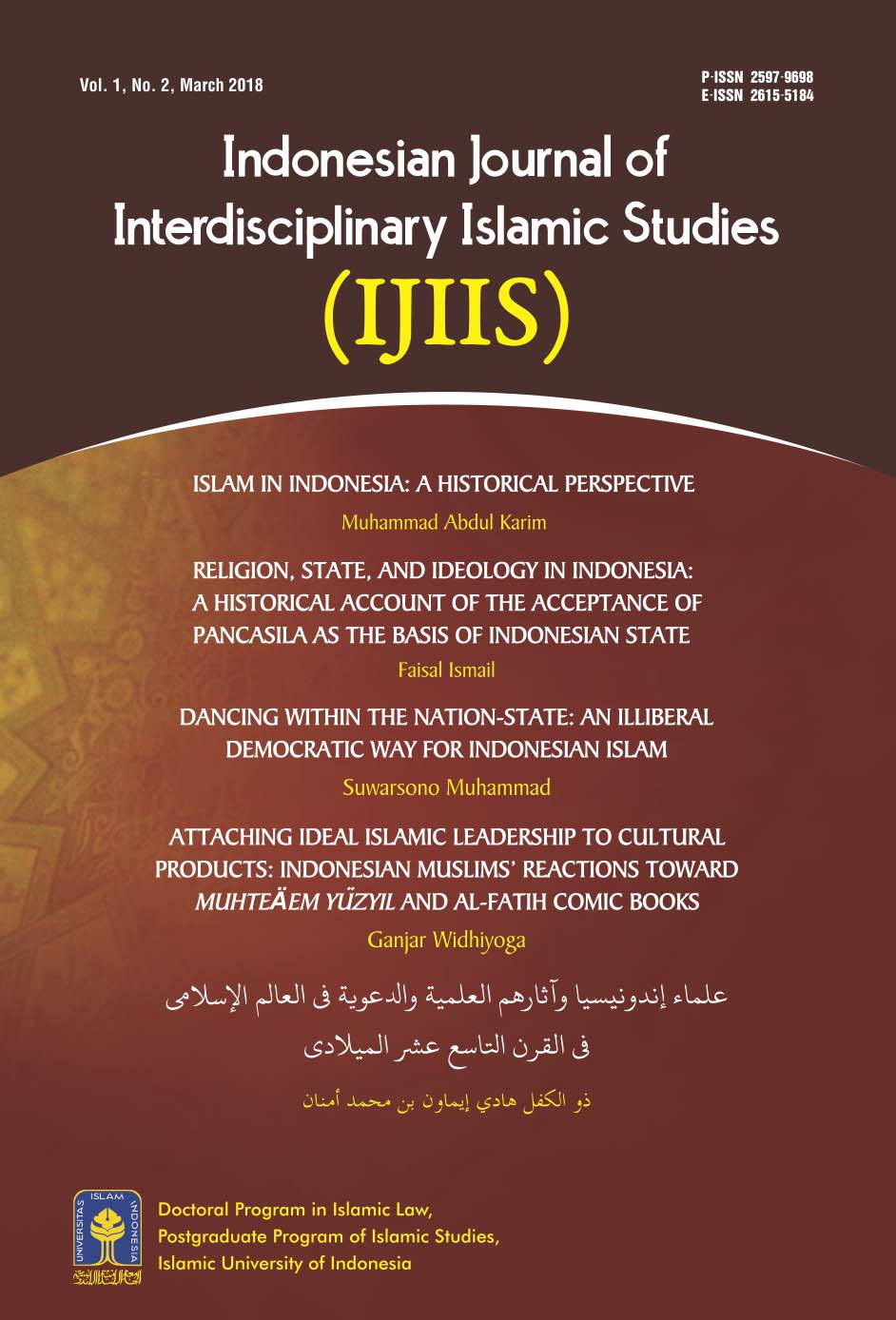Main Article Content
Abstract
With the demise of the New Order Regime in 1998, many groups of Indonesian Muslims have attained their freedom of expressions. This resulted in the flourishment of Islamic expressions in various spheres of life: economic, social, political and cultural. Within this new trend, some Muslim groups seek to establish a new historical narrative which emphasises Islam and Islamic connections to Indonesian historiography. As the result, in recent years, Indonesians have adopted a strong attachment toward Islamic historical figures whom supposedly represent the accomplishment of Islamic civilisations, such as the Ottoman sultans. While this strong attachment toward the Ottoman sultans might initally be part on efforts to build a new historical narrative for Indonesian Muslims, it found its ways of expressions not only in historical books but also in religious sermons and in cultural venues such as books and movies. This article argues that the widespread attachment in cultural products promoting the Ottoman historical figures is a method of constructing a social reality of a perfect Islamic leadership in Indonesia.
